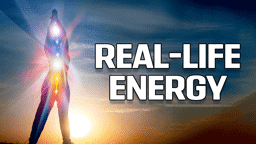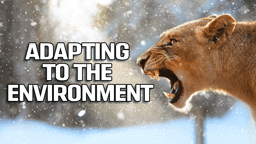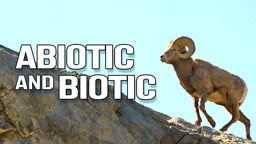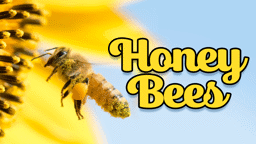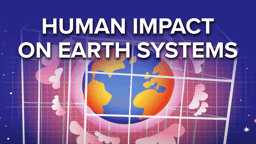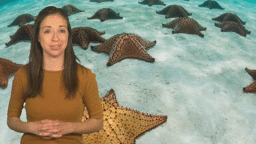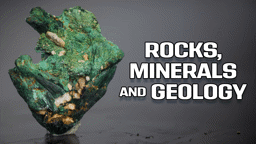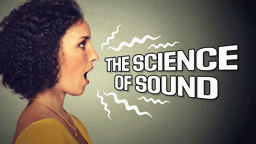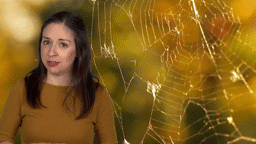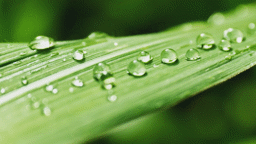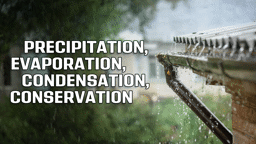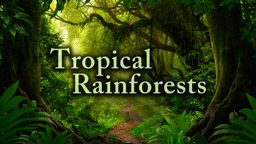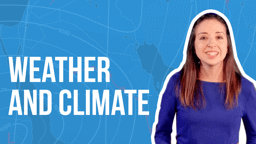Secondary Catalogue
- Content Catalogue
- Secondary
- Science Kids
×
Categories
- Careers and Work Readiness
- Functional Skills
- Industry
- Agriculture, Environment and Animal Care
- Business and Administration
- Catering and Hospitality
- Childcare and Education
- Construction
- Creative and Design
- Digital
- Engineering and Manufacturing
- Hair and Beauty
- Health and Science
- Legal, Finance and Accounting
- Protective Services
- Sales, Marketing and Procurement
- Social Care
- Transport and Logistics
- Personal Development
- Secondary
- Art & Design
- Citizenship
- Computing and ICT
- Dance
- Design & Technology
- Drama
- English
- Food Technology
- Geography
- History
- Mathematics
- Modern Foreign Languages
- Music
- Personal, Social, Health, and Economic Education
- Philosophy
- Physical Education
- Religious Education
- Science
- Teacher Professional Development
Series: Science Kids
All About Energy
Learn all about energy with new, precise, yet easy-to-understand, definitions and explanations. What is the Law of Conservation of Energy? What are potential and kinetic energy? What is work? What are energy transfers? The answers to all of these...Show More
Learn all about energy with new, precise, yet easy-to-understand, definitions and explanations. What is the Law of Conservation of Energy? What are potential and kinetic energy? What is work? What are energy transfers? The answers to all of these questions are covered in depth with detailed graphics, diagrams and exciting video. On-screen, multiple-choice reviews at the end of each segment reinforce important concepts and make learning fun. Show Less
All About Natural Selection and Adaptations
Learn all about natural selection and adaptations with new, precise, yet easy-to-understand, definitions and explanations. What is natural selection? What are adaptations? What are some ways that animals have adapted to their environments? What...Show More
Learn all about natural selection and adaptations with new, precise, yet easy-to-understand, definitions and explanations. What is natural selection? What are adaptations? What are some ways that animals have adapted to their environments? What are fossils? What is the fossil record? What factors affect how well the fossil record is preserved? The answers to these questions are covered in depth with detailed graphics, diagrams and exciting video. On-screen, multiple-choice reviews at the end of each segment reinforce important concepts and make learning fun. Show Less
Biomes, Ecosystems and Habitats: Abiotic and Biotic
Learn all about habitats and biomes. What are the five major types of biomes? What do the terms abiotic and biotic mean? What animals are found in the various biomes? What is an ecosystem? The answers to these questions and more are covered in...Show More
Learn all about habitats and biomes. What are the five major types of biomes? What do the terms abiotic and biotic mean? What animals are found in the various biomes? What is an ecosystem? The answers to these questions and more are covered in depth with detailed graphics and exciting videos. On-screen, multiple-choice reviews at the end of each segment reinforce important concepts and make learning fun. Show Less
Honey Bees: What All the Buzz is About!
Learn all about honey bees and their important roles and responsibilities in the hive. What are some basic honey bee facts? How are honey bee colonies organized? How do honey bees make honey? How do honey bees communicate through dance and...Show More
Learn all about honey bees and their important roles and responsibilities in the hive. What are some basic honey bee facts? How are honey bee colonies organized? How do honey bees make honey? How do honey bees communicate through dance and movement? How can I prevent being stung by a honey bee? The answers to these questions and many more are covered with detailed graphics, diagrams, and exciting videos, as well as on-screen, multiple-choice reviews at the end of each segment that reinforce important concepts and make learning fun. Show Less
Human Impact on Earth's Systems and Global Warming
In this program, discover how human-driven activities have led to changes in animal populations and ecosystems, an increase in air pollution, a depletion of the ozone layer, and global climate change. Learn what we can do to reduce the impact on...Show More
In this program, discover how human-driven activities have led to changes in animal populations and ecosystems, an increase in air pollution, a depletion of the ozone layer, and global climate change. Learn what we can do to reduce the impact on Earth's systems. On-screen, multiple-choice reviews at the end of each segment reinforce important concepts and make learning fun. Show Less
Invertebrates: Sponges, Worms, Mollusks, Arthropods, Echinoderms
Learn all about invertebrates. What are the major characteristics of invertebrates? What are sponges, worms, mollusks, arthropods, and echinoderms? How are they all uniquely different? The answers to all of these questions and many more are...Show More
Learn all about invertebrates. What are the major characteristics of invertebrates? What are sponges, worms, mollusks, arthropods, and echinoderms? How are they all uniquely different? The answers to all of these questions and many more are covered in depth with detailed graphics, diagrams, and exciting videos. On-screen, multiple-choice reviews at the end of each segment reinforce important concepts and make learning fun. Show Less
Matter and Energy in Organisms and Ecosystems
Learn all about matter and energy in organisms and ecosystems. What is matter? What is energy? How do plants obtain energy? How do animals get energy? What is the flow of energy throughout an ecosystem? What is the law of conservation of energy,...Show More
Learn all about matter and energy in organisms and ecosystems. What is matter? What is energy? How do plants obtain energy? How do animals get energy? What is the flow of energy throughout an ecosystem? What is the law of conservation of energy, and how does it relate to energy flow within an ecosystem? The answers to these questions and more are covered in depth with detailed graphics, diagrams, and exciting videos that reinforce important concepts and make learning fun. This program aligns with state standards and the 5th-grade core curriculum. Show Less
Plate Tectonics
Learn about pangaea and the continental drift theory. What evidence supports it? What are tectonic plates? What are the differences between convergent, divergent and transform boundaries? Find out, with the help of detailed graphics, diagrams and...Show More
Learn about pangaea and the continental drift theory. What evidence supports it? What are tectonic plates? What are the differences between convergent, divergent and transform boundaries? Find out, with the help of detailed graphics, diagrams and exciting video. On-screen, multiple-choice reviews at the end of each segment reinforce important concepts and make learning fun. Show Less
Rocks, Minerals and Geology
Learn all about rocks, minerals, and geology. What are the similarities and differences between rocks and minerals? What are the properties used by scientists to identify minerals? What are the environmental conditions during the formation of...Show More
Learn all about rocks, minerals, and geology. What are the similarities and differences between rocks and minerals? What are the properties used by scientists to identify minerals? What are the environmental conditions during the formation of sedimentary, igneous, and metamorphic rocks? What are the physical changes that occur in rocks and minerals as a result of weathering and erosion? How are rocks and minerals used in our everyday lives? The answers to all of these questions are covered in depth with detailed graphics, diagrams, and exciting videos. On-screen, multiple-choice reviews at the end of each segment reinforce important concepts and make learning fun. Show Less
Sound
Learn all about sound. What is sound? Hoes does sound move? What are the characteristics of sound waves? How do we perceive sound? What is echolocation? The answers to all of this are covered in depth with detailed graphics, diagrams and exciting...Show More
Learn all about sound. What is sound? Hoes does sound move? What are the characteristics of sound waves? How do we perceive sound? What is echolocation? The answers to all of this are covered in depth with detailed graphics, diagrams and exciting video. On-screen, multiple-choice reviews at the end of each segment reinforce important concepts and make learning fun. Written by an educator and curriculum writer. Show Less
Spiders: A Web of Wonder
Learn all about spiders. What distinguishes spiders from insects? How do spiders make webs? Why are spiders vital to our ecosystem? What are the largest and smallest spiders in the world? Which spiders are the most unique and why? The answers to...Show More
Learn all about spiders. What distinguishes spiders from insects? How do spiders make webs? Why are spiders vital to our ecosystem? What are the largest and smallest spiders in the world? Which spiders are the most unique and why? The answers to these questions and many more are covered with detailed graphics, diagrams, and exciting videos, as well as on-screen, multiple-choice reviews at the end of each segment that reinforce important concepts and make learning fun. Show Less
States of Matter: Reversible and Irreversible Change
Learn all about the states of matter - solid, liquid, and gas. What are reversible and irreversible changes? What are physical and chemical changes? These questions and more are covered in depth with detailed graphics, engaging examples, and...Show More
Learn all about the states of matter - solid, liquid, and gas. What are reversible and irreversible changes? What are physical and chemical changes? These questions and more are covered in depth with detailed graphics, engaging examples, and exciting videos. On-screen, multiple-choice reviews at the end of each segment reinforce important points and make learning fun. Show Less
The Water Cycle: Precipitation, Evaporation, Condensation, Conservation
Learn all about the water cycle. What do the terms "evaporation," "condensation," and "precipitation" mean? Where is most of the earth’s water found? What is a glacier? How can we conserve water? The answers to all of these questions and more...Show More
Learn all about the water cycle. What do the terms "evaporation," "condensation," and "precipitation" mean? Where is most of the earth’s water found? What is a glacier? How can we conserve water? The answers to all of these questions and more are covered in depth with detailed graphics, diagrams and exciting video. On-screen, multiple-choice reviews at the end of each segment reinforce important concepts and make learning fun. Show Less
Tropical Rainforests
Learn all about tropical rainforests. How do tropical rainforests remove carbon dioxide from the air we breathe and keep our planet cool? Why do scientists refer to the tropical rainforests as the world's medicine chest? Why are there so many...Show More
Learn all about tropical rainforests. How do tropical rainforests remove carbon dioxide from the air we breathe and keep our planet cool? Why do scientists refer to the tropical rainforests as the world's medicine chest? Why are there so many plants and animals in these rainforests? Why is it important to help conservationists preserve the tropical rainforests and reduce deforestation? The answers to these questions and more are covered in depth with detailed graphics, diagrams, and exciting videos. On-screen, multiple-choice reviews at the end of each segment reinforce important concepts and make learning fun. Show Less
Understanding Weather and Climate
Understand weather, climate, the greenhouse effect, the role that the ocean plays in climate, and the effects of global warming. Detailed graphics, diagrams, and exciting video, as well as on-screen, multiple-choice reviews at the end of each...Show More
Understand weather, climate, the greenhouse effect, the role that the ocean plays in climate, and the effects of global warming. Detailed graphics, diagrams, and exciting video, as well as on-screen, multiple-choice reviews at the end of each segment, reinforce important concepts and make learning fun. Show Less
